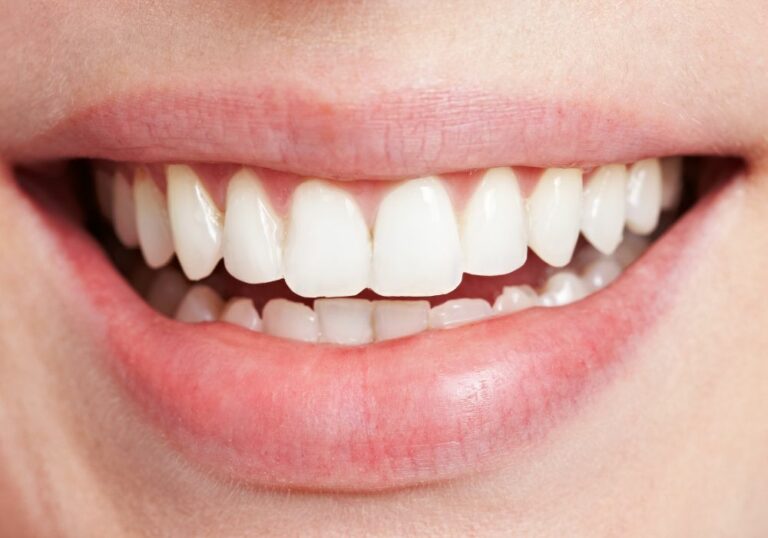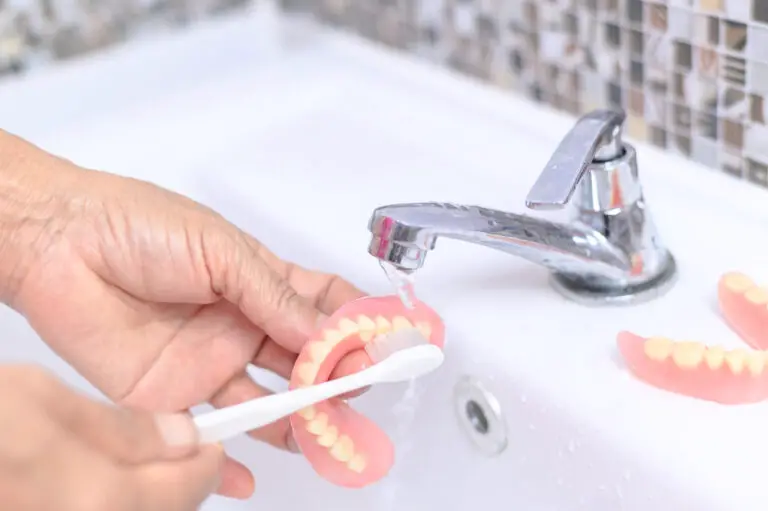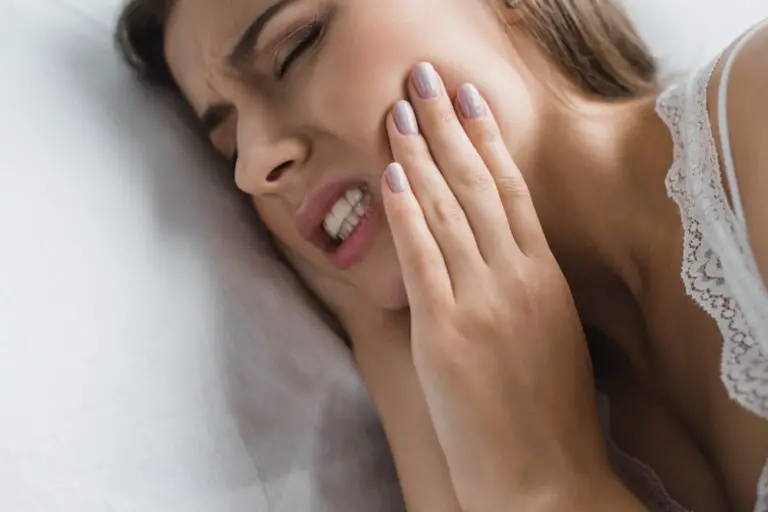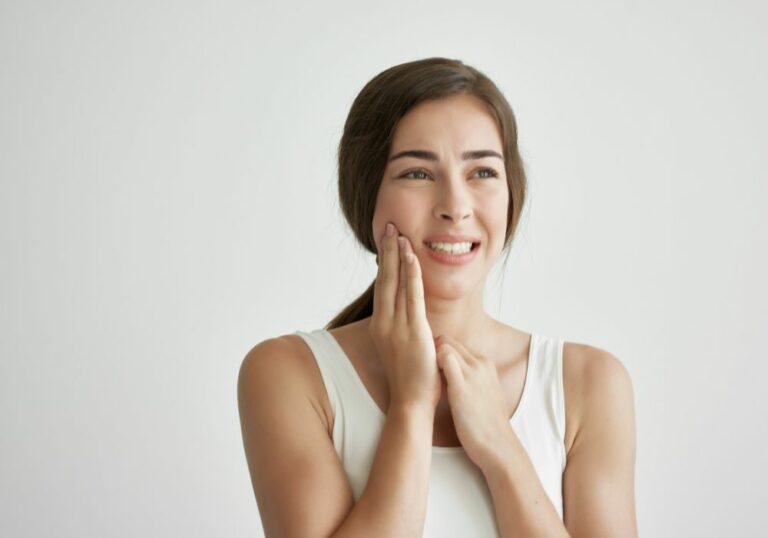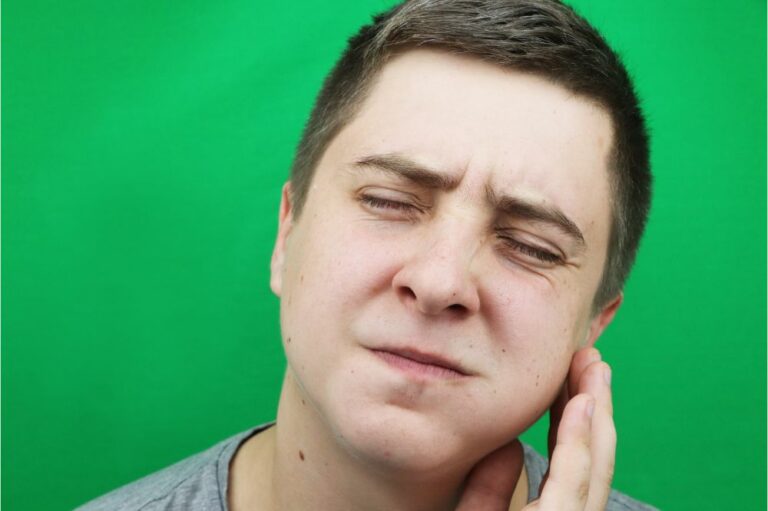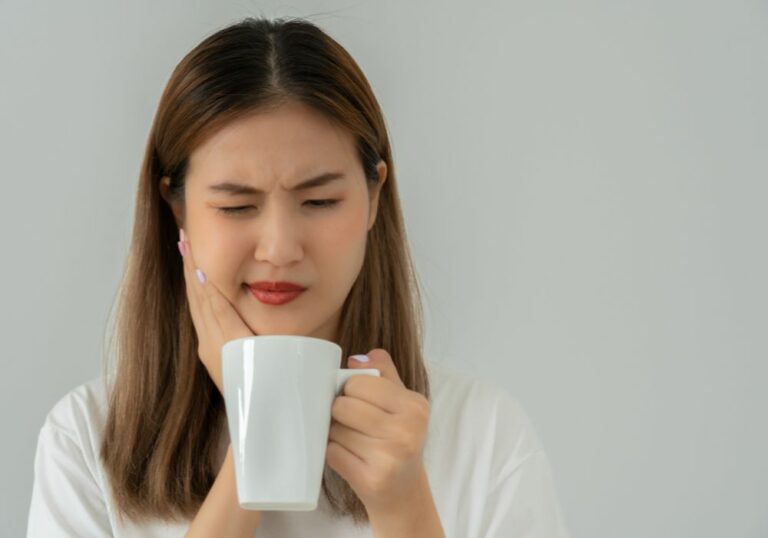Teeth chattering, also referred to as bruxism, involves the grinding, gnashing, or clenching of teeth. It is characterized by the involuntary and forceful rubbing of the upper and lower teeth together, often without purpose. This usually happens when a person is awake or asleep. Teeth chattering results in the abrasion of tooth surfaces, can cause jaw pain, headaches, and damage to dental work. It can also be a source of annoyance to a bed partner trying to sleep. Understanding the signs, causes, and treatments for teeth grinding allows you to protect your oral health.
Signs and Symptoms
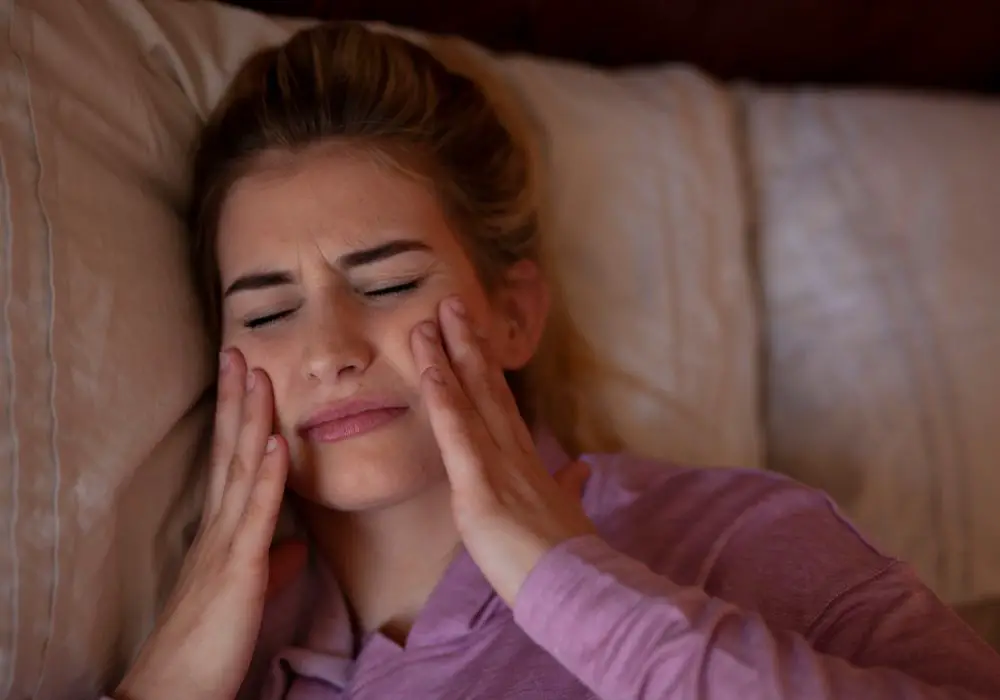
There are several clear signs that may indicate you are grinding or clenching your teeth:
- Audible grinding noises while chewing or at night during sleep
- Worn down, loose, cracked, or chipped teeth
- Tooth sensitivity to hot, cold, or pressure
- Jaw, neck, shoulder, or face pain and soreness
- Tension headaches, especially in the temples
- Earache and general fatigue upon waking
- Damage to dental work like crowns, fillings, and braces
- Jaw tightness, clicking, or locking
These symptoms point to short and long term damage from excessive teeth grinding habits. Visiting a dentist can help diagnose and measure the severity of bruxism based on tooth wear patterns and other oral issues.
What Causes Teeth Grinding?
There are several potential causes and risk factors for bruxism:
Stress and Anxiety
One of the most common causes of teeth grinding is heightened stress and anxiety. The pressures of work deadlines, financial concerns, relationship conflicts, traumatic events, and general worries induce the body’s fight-or-flight response. Grinding teeth is thought to be an unconscious physical outlet for pent up stress and agitation. People may clench their jaw during times of sudden anxiety. Chronic stress keeps the muscles tense and primed for nighttime teeth grinding.
Genetic Factors
Research suggests genetics play a role in bruxism, particularly in children. Studies show that up to 80% of children with frequent teeth grinding have a parent that also grinds their teeth. The prevalence in families indicates a hereditary component. Certain personality traits like aggression and hyperarousal are also linked to increased bruxism. Gene variations affecting the central nervous system and neurotransmitters are being investigated.
Occlusion Issues
The way your upper and lower teeth fit together, known as occlusion, can influence grinding. Abnormal alignments, crooked teeth, misplaced dental fillings, and improper bites can all contribute to grinding and clenching habits. Your teeth may not come together evenly, forcing you to put strain on the jaw to find a comfortable bite. These problems are collectively referred to as malocclusion. Orthodontic treatments help correct these issues.
Sleep Disorders
Sleep disturbances like sleep apnea cause many to grind their teeth at night. As breathing pauses during apnea episodes, teeth grinding and clenching occurs when the body struggles for air and to resume normal breathing. The lack of oxygen creates anxiety as the body fights to protect the airway. Bruxism also results from other sleep issues like snoring and GERD.
Medications and Substances
Many substances are associated with increased teeth grinding including both legal and illegal drugs. Medications like anti-depressants, anti-psychotics, amphetamines, and beta blockers are common culprits. Recreational use of ecstasy, cocaine, methamphetamines, and marijuana is also linked to bruxism. Alcohol and tobacco frequently make clenching and grinding worse as well.
Neurological Disorders
Movement disorders like Parkinson’s disease, Huntington’s disease, dystonia, and Tourette syndrome make someone more prone to bruxism. The medications used for neurological disorders often list teeth grinding as a side effect. Traumatic brain injuries and neurodegenerative disease like Alzheimer’s are also risk factors. The changes in brain chemistry increase involuntary movements of the jaw.
Gastrointestinal Reflux
Acid reflux occurs when stomach contents leak back up into the esophagus. The acid causes irritation and inflammation in the throat and mouth. Bruxism tends to accompany reflux episodes as the mouth produces extra saliva to neutralize the acid. The clenching and grinding motions also help force the fluids back down.
Other Medical Issues
There are a few other physical problems potentially tied to teeth grinding including ear infections, dental abscesses, intestinal worms, and misaligned jaws. Head and neck injuries may increase jaw muscle spasms as well. Nutritional deficiencies in iron, magnesium, and vitamins may play a role too.
Dangers of Teeth Grinding
Chronic teeth grinding can negatively impact your oral health and quality of life. Understanding the risks encourages you to find solutions to manage bruxism. Some dangers include:
Tooth Damage
The constant grinding motion wears down tooth enamel. This causes teeth to become loose, cracked, fractured, and hypersensitive. It also exposes the softer dentin layer and leads to tooth decay. The excessive clenching forces can even break teeth.
Jaw Pain
The strain placed on the temporomandibular joint and surrounding jaw muscles leads to tenderness, soreness, and pain. Jaw injuries like TMJ are common, making chewing difficult.
Headaches
Grinding tenses the muscles in the jaw, neck, scalp, and shoulders. This commonly results in tension headaches and migraines. The pain is often felt in the temples upon waking from nighttime bruxism.
Sleep Disturbances
Both you and your partner’s sleep can be affected by the loud grinding noises at night. This diminished sleep quality then increases fatigue and irritability.
Stress and Anxiety
There is a cyclical relationship between teeth grinding and mental health issues. Grinding causes more stress while anxiety and agitation increase clenching habits. This unhealthy cycle continues worsening the bruxism.
If severe bruxism is left untreated, you may ultimately require complicated dental procedures like crowns, implants, TMJ surgery, or tooth extractions to correct the damage. Therefore it is essential to manage teeth grinding early through both professional treatment and home care.
How to Stop Teeth Grinding: Professional Options
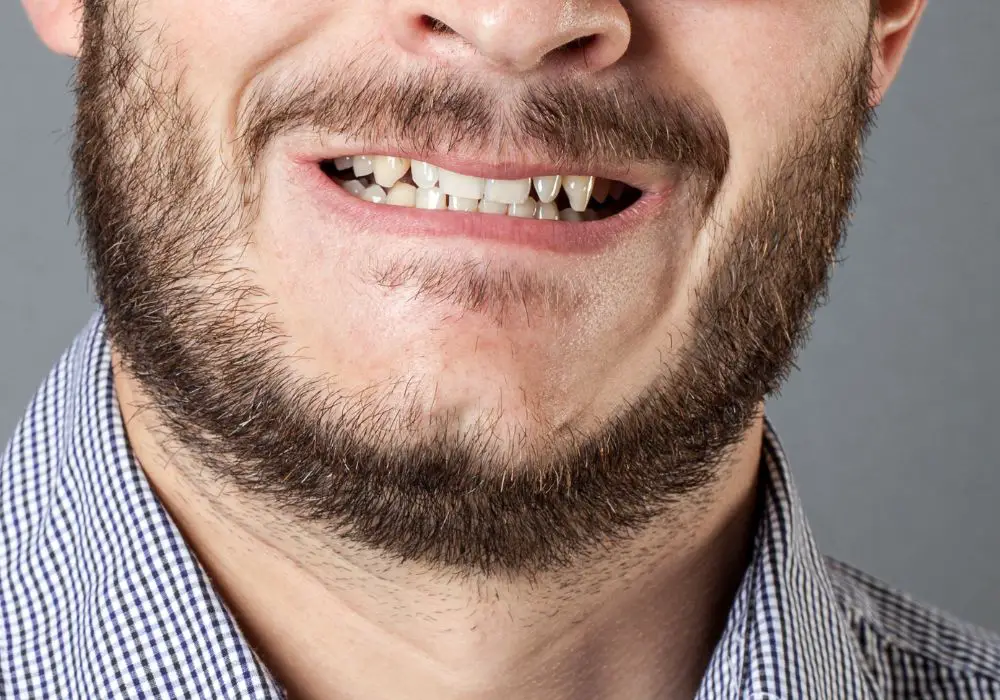
There are several professional treatment options available to help curb bruxism:
Dental Guards and Night Guards
Custom dental guards made by your dentist offer protection against grinding and clenching. Night guards are worn while sleeping to keep the upper and lower teeth separated. This prevents damage from occuring at night when most grinding takes place. Dental guards are also worn during the day if you grind your teeth while awake. They help reduce strain on the jaw muscles.
Botox Injections
Botox injections contain small amounts of botulinum toxin to partially paralyze muscles. When injected into the main jaw muscles responsible for clenching, botox inhibits grinding ability and offers temporary relief. Repeat injections are needed every 3-4 months.
Stress Reduction Therapy
Since stress is a major provoking factor for bruxism, counseling and therapy helps. Cognitive behavioral therapy gives you tools to better manage emotional stressors and reduce anxiety. Relaxation techniques are also taught, which diminish grindng urges.
Medications
Muscle relaxants, sedatives, anticonvulsants, and Botox can be prescribed to prevent nighttime teeth grinding. Treating any underlying conditions like reflux, anxiety, or sleep disorders can also alleviate bruxism.
Orthodontic Treatments
Addressing problems with bite alignment, crowding, and gaps through orthodontics like Invisalign can help ease teeth grinding. It corrects occlusion issues that cause strain on the jaw.
Oral Appliance Therapy
Oral appliances like mandibular advancement devices bring the lower jaw forward to improve airflow and sleep disorders tied to bruxism. They also keep the teeth slightly apart to prevent grinding motions.
Lifestyle Remedies for Bruxism
Along with professional help, you can incorporate daily lifestyle habits and home remedies to further reduce teeth grinding and promote healing:
Stress Management
- Use relaxation techniques like deep breathing, meditation, yoga, and guided imagery to calm the body and mind.
- Maintain work-life balance. Make time for hobbies you enjoy.
- Get regular exercise which naturally reduces stress and anxiety.
- Try talk therapy, support groups, or journaling to process worries.
Dietary Changes
- Avoid alcohol, caffeine, and tobacco which can trigger bruxism.
- Cut back on sugary foods. Stick to a soft food diet that reduces jaw strain.
- Stay hydrated by drinking plenty of water, which provides needed minerals.
- Take magnesium, vitamin B, and calcium supplements which help muscles relax.
Sleep Habits
- Follow a regular sleep routine and wind down before bedtime.
- Ensure your sleeping environment is cool and comfortable.
- Limit screen time before bed and during the night.
- Ask your partner to gently wake you if they hear grinding noises.
Local Pain Relief
- Apply warm compresses to tense jaw muscles before bed to ease discomfort.
- Massage the jaw, temples, and neck to relax the muscles.
- Use an ice pack on sore jaw areas to reduce inflammation. Alternate heat and cold therapy.
- Try over-the-counter pain medication as needed for jaw soreness and headaches.
Monitoring and Avoidance
- Keep a daily log noting times of increased grinding and related symptoms. This helps identify triggers.
- Wear a mouthguard obtained from your dentist whenever possible.
- Avoid resting your chin on your hand during the daytime.
- Stop chewing on pens, pencils, fingernails, and other objects.
Sticking to these bruxism management techniques along with professional care allows you to gain control over grinding habits and prevent permanent dental damage. However, consult your dentist promptly if symptoms persist or worsen.
When to Seek Emergency Dental Care
You should seek prompt emergency dental care if you experience:
- Sudden cracked or chipped tooth
- Extreme jaw pain that persists for days
- Bleeding from the teeth
- Mouth injury from accidental biting
- Swelling in the jaw that causes difficulty swallowing
- Numbness or loss of sensation in the face
- Inability to fully open or close your mouth
These urgent symptoms indicate dental trauma, infections, or nerve issues requiring immediate attention to avoid permanent problems. Waiting to see if symptoms resolve on their own can cause further damage. Seek help right away.
Long Term Outlook

With proper management, most people find relief from bruxism and protect their oral health. Treatments make grinding occur less frequently and less forcefully. However, teeth grinding often comes and goes over a lifetime. During periods of high stress or illness, it may return. Maintenance options like mouthguards and medication can control flare ups. For chronic severe grinders, significant dental repair work may ultimately be needed. The prognosis is good if caught early.
Teeth Grinding in Children
The causes, diagnosis, and treatments for bruxism also apply to children since teeth grinding often starts in childhood. Up to 38% of children grind to some degree, most outgrowing it by age 13. Here are some key facts about pediatric bruxism:
- Primary teeth can still suffer erosion, fractures, and nerve damage from overzealous grinding. Baby teeth set the stage for permanent teeth alignment.
- Kids are more likely to grind during the day rather than when sleeping. Noticeable signs include jaw pain, headaches, and overactive chewing motions.
- Stress and anxiety are less common childhood grinding causes than occlusal, respiratory, and neurological issues. Obstructive sleep apnea ties strongly to bruxism in children.
- Ruling out conditions like reflux, allergies, nutritional deficiencies, and parasitical infections helps determine causes.
- Small tooth molds and mouthguards made by a pediatric dentist protect children’s teeth from damage when grinding cannot be avoided.
- Reassuring anxious children and providing relaxing bedtime routines aids with stress-related bruxism.
- Most pediatric grinding resolves on its own as the jaw and airways grow and develop. But long term grinding can still impact tooth alignment and oral health.
Seeking prompt dental care helps minimize bruxism effects on children’s teeth. Gentle grinding management prevents bigger oral health problems down the road.
Teeth Grinding During Pregnancy
Pregnant women commonly experience teeth grinding due to hormonal changes, increased stress, and gastrointestinal issues like reflux. The prevalence of bruxism during pregnancy is estimated between 17% to 45%. Contributing factors include:
- Hormone fluctuations affect sleep patterns and jaw muscles. Estrogen and progesterone are frequently implicated.
- Morning sickness and reflux are common pregnancy issues that lead to grinding and clenching.
- Discomfort from weight gain, swelling, and back pain causes stress and anxiety.
- Sleep changes like frequent waking prevent deep REM sleep when grinding often occurs.
Since pregnancy bruxism is often temporary, no treatment may be needed. Sleep positioners, warm compresses, massage, and meditation help minimize symptoms. If grinding is excessive, a soft night guard protects teeth from damage. Always check with your obstetrician first before using any medications or products for bruxism during pregnancy. Pay close attention to dental hygiene and make sure to schedule a dental cleaning and exam. After birth, pregnancy-related bruxism usually resolves as hormones regulate and gastroesophageal issues improve. Let your dentist know if symptoms persist.
Frequently Asked Questions
What damage can teeth grinding cause?
Severe grinding and clenching damages teeth by chipping and cracking the enamel. This leads to sensitive, decayed, and damaged teeth requiring crowns and dental repair work. The strain also causes sore, inflamed jaw muscles, headaches, and wear and tear on the temporomandibular joint.
How do you relieve jaw pain from teeth grinding?
Gentle heat therapy and cold packs help reduce jaw muscle soreness and tension. Pain medication like acetaminophen, ibuprofen or naproxen sodium can alleviate discomfort too. Massaging the jaw and temples brings relief as well. Avoid chewing hard foods. Visit your dentist for pain caused by dental issues.
Can you grind your teeth to nothing?
While not likely, excessive untreated grinding over many years can destroy the entire enamel layer and wear teeth down to stumps. The teeth become very short and sensitive. But most sufferers address their bruxism before permanent damage reaches this advanced stage.
Why do antidepressants cause teeth grinding?
The exact reason is unknown but likely tied to increased serotonin levels. SSRI antidepressants boost serotonin which helps transmit signals between brain and muscle cells. This seems to overactivate the muscles, including the jaw muscles, leading to spasms and involuntary grinding motions.
Can teeth grinding alter your jawline?
In some cases, long term grinding and clenching enlarges the masseter jaw muscles since they are worked out constantly. This makes the jawline appear wider and more square shaped over time compared to a soft rounded jawline. The change is subtle and occurs gradually.
As you can see, there are many steps you can take to successfully stop teeth grinding, both on your own and with your dentist’s help. Pay attention to symptoms and intervene early before major tooth damage develops. With consistent care, most bruxism can be managed for better comfort and oral health.

